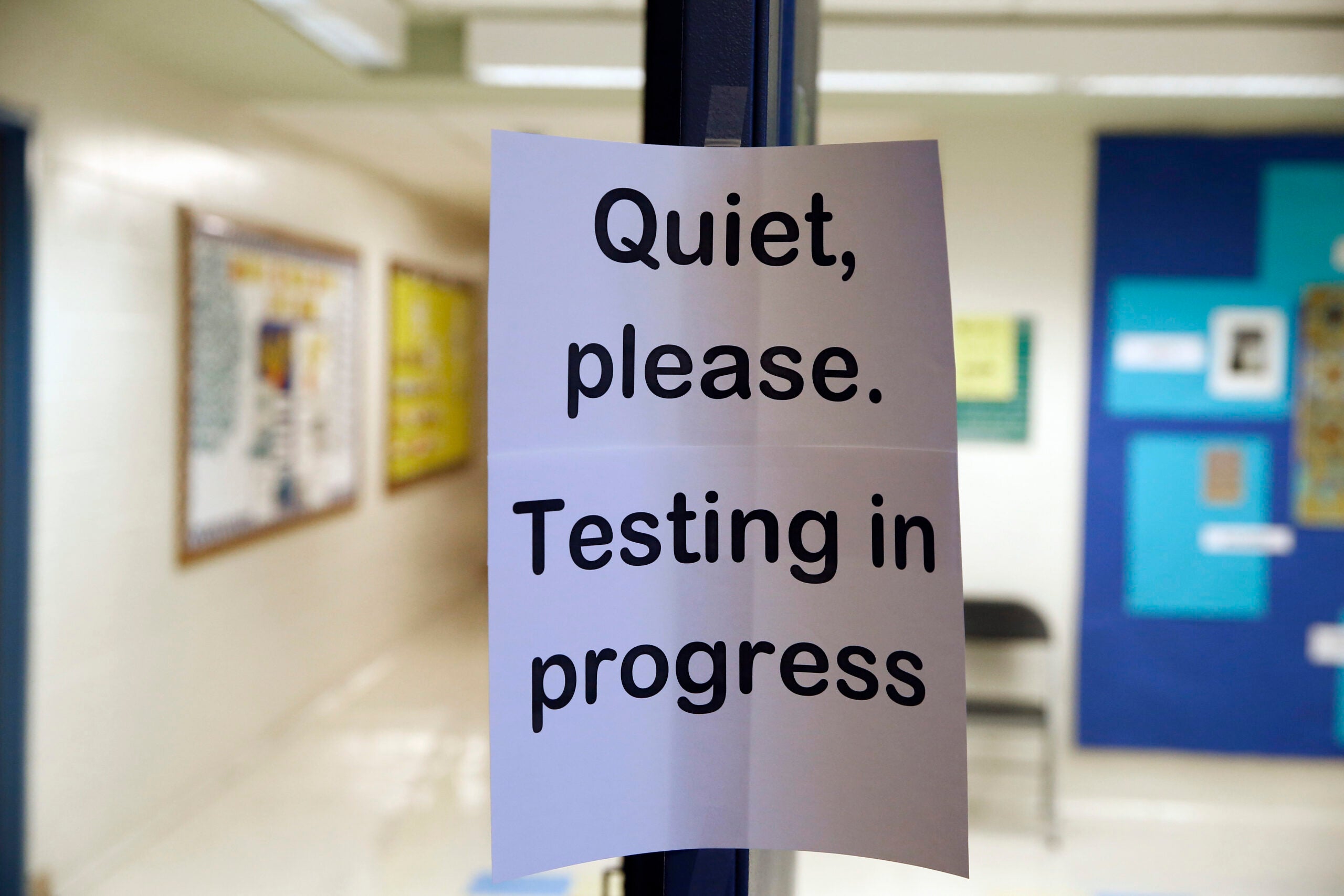The author of Wisconsin’s sweeping new reading law said Friday the legislation could get an accompanying bill to clarify how bilingual students are tested. This comes after parents and educators have raised concerns about the law, known as Act 20, and requirements that all testing be conducted in English.
“I think some things might need to be clarified, and I think there is going to be a trailer bill,” State Rep. Joel Kitchens, R-Sturgeon Bay, told WPR. “But there’s nothing here that should cause a problem for bilingual kids.”
Dozens of teachers and parents spoke during a Milwaukee Public School board meeting Thursday where school board members Marcela Garcia and Missy Zombor introduced a resolution asking the state to modify the reading law.
News with a little more humanity
WPR’s “Wisconsin Today” newsletter keeps you connected to the state you love without feeling overwhelmed. No paywall. No agenda. No corporate filter.
“English-only assessments are unjust and not valid for English language learners,” Garcia said. “And could in fact jeopardize the successful bilingual and dual language programs that make our district a leader in the state and our region, potentially violating human rights and drawing scrutiny from the Office of Civil Rights.”
State law mandates that reading curriculum should be in English. Students cannot opt out of the reading readiness screenings and tests must be given in English because the “goal is to assess English reading.”
“Act 20 does not change this, so the single statewide reading screener will be the same for all students, in English, and will assess English reading development,” according to DPI documents.
Students who do not pass the new screenings will have personalized reading plans and/or mandatory summer school, according to Act 20.
Rep. Kitchens said on Friday bilingual students will not have a separate reading plan and would be exempt from the summer school requirement.
“I know DPI has been working with the bilingual teachers, and we’ll get this straightened out,” Kitchens said.
Act 20 was passed and signed into law by Gov. Tony Evers in July to be implemented in the 2024-25 school year. The reading bill includes spending $50 million to create a new literacy office, hire reading coaches and shift away from what has been known as “balanced literacy” to a “science of reading” approach.
Students will now be taught to read with an emphasis on phonics with the hope of addressing the state’s lagging reading scores. Fewer than 40 percent of third graders were proficient in reading on the most recent Wisconsin Forward Exam. Wisconsin’s achievement gap between Black and white fourth grade students in reading has often been the worst in the nation.
Zombor, from Milwaukee Public Schools, said students should not be defined by scores on a test, but given the freedom to engage in books, learning materials and instruction in their home language.
“I’m deeply concerned that Act 20 as it’s currently being implemented, or about to be implemented, will prevent that from happening,” Zombor said. “If you ask any parent, they want their child to read books and materials that they can connect with. Books that make them experience curiosity, feelings and joy. You don’t have to be a literacy expert to understand that, if state legislators want us to prepare strong readers, they need to allow us to screen children and instruct children with materials that can do that.”
Lori Menning, president of the Wisconsin Association for Bilingual Education, said she has met with Assistant State Superintendent Tom McCarthy.
“Wisconsin continues to be a local control state, and that is where we continue to rely on advocacy,” Menning said. “We are encouraging all of our members, our educators and our families to reach out to state legislators, the Department of Public Instruction and local school boards to share their concerns as it applies to multilingual learners and to really stay informed with your local school districts as they begin to implement Act 20 to help ensure that the civil rights of Wisconsin multilingual learners are protected.”
Wisconsin Public Radio, © Copyright 2025, Board of Regents of the University of Wisconsin System and Wisconsin Educational Communications Board.







